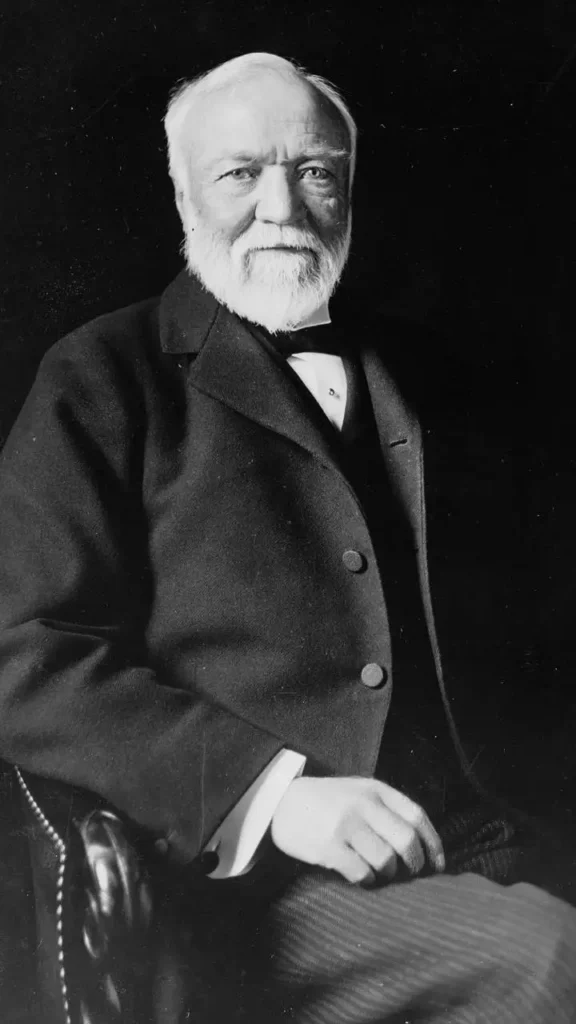The ESFJ personality type, known as “The Caregiver” or “The Consul,” stands out for its warm, sociable, and nurturing nature.
People with the ESFJ personality type thrive in environments where they can make a positive impact on others’ lives. Known for their attentiveness, empathy, and commitment to helping others, ESFJs often serve as the backbone of their communities, families, and workplaces.
This personality type, part of the Myers-Briggs® Type Indicator (MBTI), places a high value on relationships, social harmony, and responsibility, making ESFJs natural caregivers and organizers.
In this blog, we’ll explore the core characteristics of the ESFJ personality type, from their values and strengths to their unique communication style and ideal career paths.
Whether you’re an ESFJ seeking self-understanding or someone who wants to learn more about an ESFJ friend or family member, this guide will provide a comprehensive look into the world of the ESFJ personality type.
We’ll delve into what drives these compassionate individuals, the ways they contribute to their communities, and how they navigate relationships, learning, and leadership roles.
Table of Contents
Understanding the ESFJ Personality Type
The ESFJ personality type is one of the 16 types identified by the MBTI. Known for their loyalty, dependability, and people-centered approach, ESFJs bring warmth and support to every interaction.
This personality type is guided by strong values and a commitment to making a difference in others’ lives.
ESFJs feel a deep sense of duty to their loved ones and the community and are often the ones who help organize gatherings, provide comfort during tough times, and create a positive, inclusive atmosphere.
Driven by Extraverted Feeling (Fe), ESFJs prioritize the needs and emotions of others, often putting others’ well-being ahead of their own.
They possess a remarkable ability to sense what others are feeling and respond with empathy and support.
While they are practical and grounded, they also have a strong sense of tradition and prefer routines and structures that provide stability and security.
ESFJs are often seen as the “glue” that holds communities together, ensuring that everyone feels included and valued.
What Does ESFJ Stand For?
ESFJ is an acronym that represents four core personality traits:
- Extraverted (E): ESFJs are social and outgoing, drawing energy from interactions with others. They thrive in group settings and feel fulfilled when they can contribute to their communities.
- Sensing (S): ESFJs focus on details and practical realities, rather than abstract concepts. They are grounded in the present and excel at handling concrete tasks and responsibilities.
- Feeling (F): Guided by their emotions and values, ESFJs make decisions based on what will create harmony and benefit the people around them. They prioritize compassion and empathy in their interactions.
- Judging (J): ESFJs prefer order, structure, and predictability. They value routines and clear plans, often planning ahead to ensure that everything runs smoothly and efficiently.
These four traits combine to create a personality that is deeply attuned to others’ needs and highly skilled at creating positive, harmonious environments.
ESFJs are known for their dependability and their genuine desire to help others, often making them the go-to person in their families and communities.
The Caregiver: A Brief Overview

ESFJs are often referred to as “The Caregiver” or “The Consul” because of their nurturing and compassionate nature.
They are genuinely concerned with the well-being of those around them and often go out of their way to ensure that everyone feels comfortable and valued.
While their caregiving instincts often lead them to pursue roles that allow them to help others directly, they also bring this supportive energy into all aspects of their lives, from friendships to careers to romantic relationships.
As “The Caregiver,” the ESFJ personality type embodies a dedication to fostering harmony and unity.
They are often the ones who step in to resolve conflicts, offer a listening ear, or lend a helping hand. ESFJs are practical yet compassionate, and they find joy in making a positive difference.
Unlike some personality types that prefer introspective or theoretical pursuits, ESFJs are happiest when actively contributing to their communities and engaging with others.
They bring stability, warmth, and a sense of tradition to their interactions, making them invaluable members of any social group.
ESFJs’ inclination toward caregiving isn’t merely about being helpful; it’s about creating a strong, supportive network that brings people together.
They are the ones organizing family gatherings, celebrating others’ achievements, and keeping the group united.
Their kindness, practicality, and dedication make them cherished friends, family members, and colleagues, and their positive impact can be seen in every community they are part of.
Core Traits of the ESFJ Personality Type
ESFJs, also known as “The Caregivers,” are defined by their strong focus on people, harmony, and responsibility. Here are the core traits that shape the ESFJ personality type:
1. Empathetic and Compassionate

ESFJs are naturally empathetic, with a genuine concern for others’ feelings and well-being.
They have a keen sense of what people need emotionally and often go out of their way to offer support.
This deep compassion helps them create connections with others and makes them trusted confidants.
2. Social and Outgoing

People with the ESFJ personality type are highly sociable and energized by interactions with others.
They thrive in group settings and enjoy bringing people together, whether it’s through family gatherings, social events, or work meetings.
ESFJs are often seen as the “social glue” that holds groups together.
3. Detail-Oriented and Practical

ESFJs focus on practical matters and are skilled at handling concrete details.
They prefer dealing with clear, tangible tasks over abstract ideas. This trait makes them dependable and thorough in their responsibilities, whether in personal life or at work.
4. Organized and Reliable

ESFJs value structure and routine, often creating detailed plans to ensure everything runs smoothly.
They are dependable and responsible, taking their commitments seriously.
This organizational skill not only helps them stay on top of their own duties but also allows them to assist others effectively.
5. Value-Driven and Tradition-Oriented

Guided by a strong sense of values and tradition, ESFJs are respectful of established norms and customs.
They appreciate stability and continuity, often looking to uphold practices that foster unity and security within their families and communities.
This trait can make them resistant to change but also makes them loyal and dependable allies.
These core traits contribute to the ESFJ’s role as a caring, dependable, and community-oriented individual.
They are often found in roles where they can make a tangible difference, providing support, creating harmony, and ensuring that others feel valued and understood.
Strengths of the ESFJ Personality Type
The ESFJ personality type brings a set of strengths that make them exceptional at fostering positive connections and supporting others. Here are some of the key strengths that define ESFJs:
1. Empathy and Emotional Awareness

ESFJs have a natural ability to understand and empathize with others’ emotions.
They are highly attuned to the feelings and needs of those around them, making them excellent listeners and compassionate friends.
This emotional awareness allows them to offer meaningful support and comfort to those who need it.
2. Strong Interpersonal Skills

ESFJs are social by nature and excel in interpersonal settings.
They are approachable, friendly, and skilled at making others feel valued and included.
Their warmth and positivity help them build strong connections, whether with friends, family, or coworkers, and they thrive in group dynamics where collaboration and teamwork are involved.
3. Dependable and Responsible

Reliability is a hallmark of the ESFJ personality type.
ESFJs take their commitments seriously and are known for their strong sense of responsibility. People often rely on them for support, as they consistently follow through on promises and go the extra mile to help others.
Their sense of duty makes them trustworthy and dependable.
4. Organized and Detail-Oriented

ESFJs are highly organized and detail-oriented, preferring structure and order in their lives.
They are meticulous when it comes to planning, whether for personal events, work projects, or community gatherings.
This organizational strength ensures that tasks are completed efficiently and that everyone around them benefits from their well-thought-out arrangements.
5. Supportive and Encouraging

One of the ESFJ’s greatest strengths is their ability to uplift and motivate others.
They genuinely want to see people succeed and are always ready with words of encouragement.
Their supportive nature makes them ideal mentors, coaches, and friends, as they enjoy helping others reach their potential and are always ready to offer assistance.
These strengths make ESFJs an invaluable part of any community or social group.
Their empathy, reliability, and organizational skills allow them to contribute positively to their environments, fostering harmony, support, and a sense of togetherness.
Weaknesses of the ESFJ Personality Type
While the ESFJ personality type is characterized by many positive traits, there are also some challenges that come with it. Here are a few common weaknesses that ESFJs may experience:
1. Overly Concerned with Others’ Opinions

ESFJs often have a strong desire for approval and validation from others, which can lead to a dependence on others’ opinions.
They may struggle with self-doubt if they feel judged or criticized and can become overly concerned with fitting in or pleasing everyone around them.
This tendency can make it challenging for them to make decisions that go against the grain.
2. Difficulty Handling Criticism

Due to their sensitivity to others’ feedback, ESFJs may find it challenging to handle criticism, even if it’s constructive.
They take feedback to heart and may become defensive or feel personally attacked when criticized.
This sensitivity can hinder their ability to grow from constructive feedback and can affect their self-confidence.
3. Reluctance to Embrace Change

ESFJs are often traditionalists who value stability and predictability.
They may struggle with change or ambiguity, especially if it disrupts their routines or expectations.
Their resistance to change can sometimes make it difficult for them to adapt to new situations, causing stress when faced with unplanned or uncertain circumstances.
4. Tendency to Neglect Their Own Needs

Known for their selflessness, ESFJs often prioritize others’ needs over their own.
While this makes them excellent caregivers, it can also lead to burnout and exhaustion if they don’t take time to care for themselves.
They may feel guilty or selfish when focusing on their own well-being, which can result in neglecting their own physical or emotional needs.
5. Difficulty Setting Boundaries

ESFJs have a hard time saying no, which can lead to taking on too many responsibilities.
They may feel obligated to help others or take on extra tasks to avoid disappointing people. This lack of boundaries can result in stress, overwhelm, and even resentment if they feel their kindness is being taken advantage of.
These weaknesses can present challenges for ESFJs, especially when they overextend themselves or prioritize others’ needs at their own expense.
By recognizing and addressing these tendencies, ESFJs can work toward a healthier balance that allows them to support others while also taking care of themselves.
15 Words that Best Describe the ESFJ Personality Type
Compassionate
Reliable
Social
Empathetic
Organized
Supportive
Responsible
Encouraging
Loyal
Practical
Traditional
Attentive
Warm
Community-Oriented
Dependable
Cognitive Functions of the ESFJ Personality Type
The following table displays the whole cognitive function stack for the ESFJ personality type.
| SL No. | Roles | Cognitive Functions |
| 1. | Dominant/Hero/Heroine/Leading | Extraverted Feeling (Fe) |
| 2. | Auxiliary/Good Parent/Supportive | Introverted Sensing (Si) |
| 3. | Tertiary/ Relief/ Eternal Child | Extraverted Intuition (Ne) |
| 4. | Inferior/Aspirational/Anima or Animus | Introverted Thinking (Ti) |
| 5. | Opposing/Villian/Backup | Introverted Feeling (Fi) |
| 6. | Critical Parent/Witch/Senex/Discovery | Extraverted Sensing (Se) |
| 7. | Trickster/Blind/Deceiving/Comedic | Introverted Intuition (Ni) |
| 8. | Demon/Devilish/Angelic/Transformative | Extraverted Thinking (Te) |
Key Communication Traits of the ESFJ Personality Type

ESFJs are known for their warm, considerate, and people-centered communication style. Here are some defining traits that shape how ESFJs communicate:
1. Warm and Approachable
ESFJs communicate with friendliness and warmth, making others feel comfortable and valued. Their approachable demeanor helps build trust and openness in conversations, creating a welcoming environment.
2. Attentive and Active Listeners
ESFJs are highly attentive to what others are saying. They engage in active listening, often nodding, making eye contact, and asking thoughtful follow-up questions to show they care and are genuinely interested.
3. Encouraging and Supportive
Known for their supportive nature, ESFJs use words of encouragement to uplift others. They naturally provide positive reinforcement, helping others feel confident and motivated in their personal or professional endeavors.
4. Clear and Direct
ESFJs communicate clearly and directly, ensuring their message is understood. They avoid ambiguity, preferring to express themselves in a straightforward manner to prevent misunderstandings.
5. Emotionally Attuned
Sensitive to the emotional undercurrents of conversations, ESFJs are skilled at recognizing and responding to others’ feelings. They often adjust their tone or language to align with the emotional needs of the person they’re speaking to.
6. Inclusive and Community-Oriented
ESFJs excel at creating a sense of unity and inclusivity. They enjoy bringing people together and often use their communication skills to foster group cohesion, ensuring everyone feels valued and included.
These communication traits make ESFJs effective in connecting with others, offering both clarity and emotional support in every interaction. Their compassionate and considerate style strengthens bonds and builds harmonious relationships.
Key Learning Traits of the ESFJ Personality Type

ESFJs bring a practical and people-focused approach to learning, valuing clarity, structure, and real-world application. Here are some key traits that define the ESFJ learning style:
1. Preference for Structure and Organization
ESFJs thrive in organized and well-structured learning environments. They appreciate clear guidelines, step-by-step instructions, and a logical flow of information, which helps them understand concepts thoroughly and retain information better.
2. Hands-On, Practical Approach
ESFJs learn best when they can see the real-world applications of what they’re studying. They prefer learning methods that are grounded in practical experience, where they can directly apply knowledge to everyday situations.
3. Value-Driven and Purposeful
ESFJs are highly motivated when learning aligns with their values or serves a meaningful purpose. They are drawn to subjects that allow them to help others or benefit their community, as they find motivation in seeing how knowledge can be used to make a positive impact.
4. Strong Focus on Memorization and Repetition
ESFJs are effective learners when using repetition, lists, or memory aids. They excel at memorizing details and facts, often studying by going over material multiple times to reinforce knowledge and ensure accuracy.
5. Preference for Group and Collaborative Learning
Social by nature, ESFJs enjoy learning in group settings. They appreciate opportunities to discuss concepts with others, engage in team activities, and share insights. Group learning allows them to build relationships while deepening their understanding.
These traits make ESFJs organized and practical learners who value purpose and connection in their educational experiences. They thrive in environments where they can engage with others, apply what they’ve learned, and work within a structured framework.
Key Leadership Traits of the ESFJ Personality Type

ESFJs bring a compassionate, organized, and community-focused approach to leadership, emphasizing the well-being of their team and fostering a collaborative environment. Here are some defining leadership traits of the ESFJ personality type:
1. Supportive and People-Oriented
ESFJs lead with a genuine concern for the well-being of their team members. They prioritize building relationships, listening to their team’s needs, and offering encouragement, making them approachable and trusted leaders.
2. Structured and Organized
As leaders, ESFJs excel at creating order and efficiency. They are skilled at planning, setting clear goals, and establishing processes that allow their teams to work effectively. This organized approach helps maintain stability and direction.
3. Encouraging and Motivational
ESFJs are natural motivators, often offering positive reinforcement and recognition to team members. They boost morale by celebrating successes, recognizing hard work, and inspiring their team to perform at their best.
4. Conflict-Resolution Oriented
ESFJs strive to create harmonious work environments and are adept at mediating conflicts. They approach disagreements with empathy, seeking solutions that honor everyone’s perspectives and maintain unity within the team.
5. Ethical and Responsible
Driven by strong values, ESFJs lead with integrity and a sense of duty. They make decisions with the group’s best interest in mind, taking their responsibilities seriously and modeling dependability and accountability.
These leadership traits make ESFJs effective, supportive leaders who inspire trust, foster harmony, and create a structured, positive environment where team members feel valued and motivated.
Key Friendship Traits of the ESFJ Personality Type

ESFJs are loyal, supportive friends who deeply value connection, harmony, and mutual support in their relationships. Here are some of the key traits they bring to friendships:
1. Loyal and Dependable
ESFJs are devoted friends who can be counted on through thick and thin. They take their commitments seriously and are always there to offer support, advice, or a helping hand, making them reliable and steadfast companions.
2. Attentive and Thoughtful
ESFJs are highly attuned to the needs and feelings of their friends. They remember the small details, celebrate important milestones, and often go out of their way to make friends feel valued and cared for.
3. Social and Inclusive
Social by nature, ESFJs love bringing people together and often play the role of “connector” in their social circles. They make efforts to include everyone, creating a warm and welcoming atmosphere where all feel comfortable.
4. Encouraging and Uplifting
ESFJs naturally cheer on their friends, providing encouragement and positive reinforcement. They celebrate friends’ achievements and are quick to offer words of support, helping boost morale during challenging times.
5. Conflict-Averse but Resolute
While ESFJs prefer to avoid conflicts, they will address issues if it means preserving harmony in the relationship. They approach conflicts with empathy, aiming for solutions that strengthen the friendship rather than strain it.
These friendship traits make ESFJs beloved friends who bring warmth, stability, and encouragement to their relationships. Their attentiveness and loyalty foster lasting bonds and create a supportive social network.
Key Love & Intimacy Traits of the ESFJ Personality Type

ESFJs bring dedication, warmth, and attentiveness to their romantic relationships, often making them deeply caring and committed partners. Here are some defining love and intimacy traits of the ESFJ personality type:
1. Affectionate and Expressive
ESFJs openly express their love and affection through words and actions. They show their appreciation with thoughtful gestures, kind words, and quality time, making their partners feel cherished and valued.
2. Commitment-Focused
ESFJs take relationships seriously and are often focused on building long-term, stable partnerships. They are loyal and committed to their loved ones, prioritizing relationship stability and mutual support.
3. Emotionally Attentive
ESFJs are highly attuned to their partner’s emotional needs. They notice changes in mood, offer support during difficult times, and strive to create a safe and nurturing environment where their partner feels comfortable expressing themselves.
4. Supportive and Encouraging
In relationships, ESFJs are naturally encouraging and uplifting. They believe in their partner’s potential and are always ready to provide words of encouragement, help them pursue their goals, and celebrate their successes together.
5. Harmony-Oriented
ESFJs value harmony and work hard to avoid conflicts in their relationships. They are willing to compromise and often take a proactive approach in addressing issues to maintain peace and understanding, strengthening their emotional bond.
These traits make ESFJs devoted and attentive partners who invest deeply in creating a loving, harmonious, and supportive relationship. Their affection and commitment build a foundation of trust, making them reliable and caring companions.
Suitable Careers for the ESFJ Personality Type

ESFJs thrive in careers where they can make a tangible, positive impact on others and use their organizational and interpersonal skills. Here are some ideal career paths for the ESFJ personality type:
1. Healthcare Professional
ESFJs excel in roles such as nursing, medical assisting, or occupational therapy, where they can provide hands-on care and compassion. Their empathetic nature makes them especially suited to helping patients feel supported and understood.
2. Teacher or Educator
Teaching allows ESFJs to guide, support, and positively influence students. They enjoy creating structured, interactive learning environments and are skilled at meeting students’ needs, making them excellent teachers or academic counselors.
3. Human Resources Specialist
In HR roles, ESFJs can use their people skills and sense of responsibility to manage employee relations, recruit talent, and ensure a positive work environment. They excel at creating supportive workplaces and fostering good morale.
4. Social Worker or Counselor
ESFJs’ empathetic and caring nature is well-suited to social work and counseling, where they can make a direct difference in people’s lives. They provide emotional support and practical guidance, which aligns with their desire to help others thrive.
5. Event Planner
With their strong organizational skills and attention to detail, ESFJs are skilled at planning events and coordinating details. They enjoy creating memorable experiences and ensuring that every aspect of an event runs smoothly.
6. Public Relations Specialist
ESFJs excel in PR roles where they can build relationships, manage an organization’s image, and communicate positively with the public. Their people-focused approach makes them effective at fostering trust and promoting positive interactions.
7. Customer Service Manager
In customer service, ESFJs can use their empathy and attentiveness to address clients’ needs, resolve issues, and ensure satisfaction. They thrive in roles that require them to be supportive and responsive to others.
8. Nonprofit Organizer
ESFJs are passionate about giving back and can make a meaningful impact in nonprofit roles. They are effective in fundraising, community outreach, and program coordination, bringing compassion and dedication to their work.
These careers align with ESFJs’ natural strengths in caring for others, organizing, and fostering positive relationships, allowing them to find both fulfillment and success in their professional lives.
Famous ESFJs and ESFJ Celebrities
1. Hugh Jackman

Known for his versatility and charisma, Hugh Jackman brings warmth and dedication to his roles, both on-screen and in his philanthropic efforts, embodying the caring spirit of the ESFJ personality type.
2. Kamala Harris

As the U.S. Vice President, Kamala Harris shows her ESFJ traits through her dedication to community and justice, balancing compassion with a structured approach to leadership.
3. Joe Biden

President Joe Biden reflects the ESFJ personality type with his empathetic leadership, focusing on unity, service, and building connections with the public.
4. Pope Francis

Known for his compassionate approach to modern issues, Pope Francis exemplifies the ESFJ’s nurturing nature, advocating for kindness, equality, and understanding within the Catholic Church.
5. Andrew Carnegie

The industrialist and philanthropist Andrew Carnegie displayed the ESFJ’s community-oriented nature, using his wealth to fund libraries, education, and public institutions for societal improvement.
6. LeBron James

On and off the basketball court, LeBron James demonstrates his ESFJ qualities through his team spirit, commitment to social causes, and focus on inspiring and uplifting others.
7. Bill Clinton

As the 42nd President of the United States, he embodied the ESFJ’s natural drive to serve others, fostering collaboration and building lasting relationships throughout his political career. He is known for his charismatic leadership, strong interpersonal skills, and ability to connect deeply with people.
8. Joseph Morgan

Known for his role as Klaus in The Originals, Joseph Morgan brings an ESFJ’s dedication to his craft and shows care for his fans, engaging deeply with his audience.
9. Margot Robbie

The talented actress Margot Robbie combines the ESFJ’s meticulous work ethic with a grounded, personable demeanor, making her both relatable and highly respected in the industry.
10. Kelly Preston

The late Kelly Preston was known for her kindness and dedication to her family and community, traits that reflect the nurturing, empathetic qualities of the ESFJ personality type.
Tips for the ESFJ Personality Type for Balance & Personal Growth

For ESFJs, finding balance and fostering personal growth often involves self-care, setting boundaries, and embracing flexibility. Here are some valuable tips to help ESFJs thrive:
1. Prioritize Self-Care
ESFJs are naturally inclined to care for others, but it’s essential for them to take time for themselves as well. Regularly set aside time for relaxation, hobbies, and activities that recharge you mentally and physically.
2. Set Healthy Boundaries
ESFJs can sometimes struggle with saying no, which can lead to burnout. Practice setting limits on your time and energy, and don’t hesitate to communicate your needs when you feel overwhelmed.
3. Embrace Flexibility
While ESFJs value structure, learning to adapt to unexpected changes can be beneficial. Try to view change as an opportunity for growth rather than a disruption, and stay open to new ways of doing things.
4. Practice Self-Reflection
Regular self-reflection can help ESFJs grow and gain deeper self-awareness. Journaling or meditation can be great tools for processing your thoughts, understanding your feelings, and setting personal goals.
5. Welcome Constructive Feedback
ESFJs often take criticism personally, but learning to view feedback as an opportunity for improvement can foster resilience. Embrace constructive feedback, focusing on how it can help you grow and develop.
6. Explore Personal Interests
ESFJs can benefit from discovering activities that fulfill their creative or intellectual interests. Whether it’s a new skill, art form, or physical activity, personal pursuits outside of work and relationships can add balance and satisfaction.
7. Cultivate Independence
While ESFJs excel in collaborative roles, building confidence in independent activities is also helpful. Spend time developing skills or pursuing goals that are meaningful to you personally, even if they don’t directly involve others.
8. Practice Mindfulness
Staying present can help ESFJs manage stress and anxiety about the future. Incorporating mindfulness practices into daily routines—like deep breathing or mindful walks—can improve focus and emotional balance.
By incorporating these tips into their lives, ESFJs can maintain a healthy balance between their natural tendency to support others and their need for self-care, enabling them to grow personally while enjoying more balanced and fulfilling relationships.
Research Describing the ESFJ Personality Type

The following data is taken from the MBTI® Manual – Third Edition.
The ESFJ personality type, often referred to as “The Caregiver,” is associated with some fascinating research-based characteristics that highlight their unique preferences, strengths, and challenges across various aspects of life. Here are ten of the most intriguing research findings about the ESFJ personality type:
1. High Satisfaction in Relationships
ESFJs rank highest among all personality types in satisfaction with marriage and intimate relationships. Their commitment to fostering harmony and supporting loved ones plays a significant role in their high satisfaction levels in personal relationships.
2. Preference for Service-Oriented Careers
The ESFJ personality type places a high value on careers that emphasize “Service to others.” This aligns with their strong desire to make a positive impact and contribute to the well-being of others, making them well-suited for roles in education, healthcare, and social work.
3. Faith and Spiritual Belief
ESFJs rank second highest in their belief in a higher spiritual power, often turning to spirituality and religion as sources of strength and guidance. This spiritual inclination provides them with a sense of purpose and comfort, especially in challenging times.
4. High Workplace Satisfaction
ESFJs report high levels of satisfaction with both their work environment and co-workers. They thrive in structured, supportive settings where they can collaborate closely with others and contribute to a positive team dynamic.
5. Reliance on Social and Religious Coping Mechanisms
When dealing with stress, ESFJs often cope by “Talking to someone close” or “Relying on religious beliefs.” Their social and spiritual approach to handling stress highlights the ESFJ personality type’s reliance on external support systems.
6. Commitment to Loyalty and Security
In work environments, ESFJs favor characteristics like “Loyalty and security,” “Clear structure,” and “Making the job as simple as possible.” They prefer stable, well-defined roles that allow them to contribute meaningfully and feel secure.
7. Underrepresentation in Substance Abuse Programs
ESFJ males and females are underrepresented in substance abuse programs, as well as in college referrals for substance abuse workshops. This suggests that the ESFJ personality type is less prone to substance-related issues, likely due to their commitment to structure, responsibility, and well-being.
8. Focus on Health and Spirituality
ESFJs rank highest in valuing “Health” and “Religion or spirituality” and are among those who value “Happy family” and “Community service.” These values demonstrate their dedication to physical health, mental well-being, and creating positive environments for themselves and others.
9. Low Preference for Autonomy and Independence
Compared to other types, ESFJs show the lowest preference for “Autonomy, freedom, and independence” in the workplace. Instead, they value clear guidelines, collaboration, and teamwork, making them less likely to pursue independent roles.
10. High Retention Rates in Education
ESFJs are among the highest in college retention, likely due to their dependable, disciplined nature and dedication to seeing commitments through. This trait contributes to their success in structured environments where persistence and steady effort are essential.
These research-based insights offer a comprehensive view of the ESFJ personality type’s values, strengths, and inclinations in life, love, work, and well-being.
The ESFJ personality type’s focus on loyalty, service, and harmony make them invaluable contributors in various settings, from relationships to professional environments.
This research underscores why ESFJs are often seen as the compassionate, reliable pillars of their communities, bringing stability and care wherever they go.
Conclusion

The ESFJ personality type, known for its warmth, dedication, and commitment to service, truly embodies the spirit of “The Caregiver.” ESFJs are driven by a deep desire to create harmony and support others, making them cherished friends, partners, colleagues, and leaders.
Their natural empathy, combined with a structured, practical approach, allows them to connect deeply with those around them and make tangible, positive impacts in their communities.
However, like all personality types, ESFJs also face challenges, such as the potential to neglect their own needs while caring for others or to become overly concerned with others’ opinions.
By balancing their strong sense of duty with self-care and resilience, ESFJs can continue to thrive and grow, bringing their unique strengths into every area of their lives.
The ESFJ personality type’s dedication to building a supportive, connected world truly makes them a vital presence in any environment.
If you enjoyed this post, don’t forget to check these!
INFP Personality Type: Best Key Traits, 8 Strengths, and Weaknesses
ISFP Personality Type: Best Key Traits,5 Strengths and Weaknesses
ENFJ Personality Type: Best Key Traits, 8 Strengths and Weaknesses
If you found this information helpful, share it with someone who needs it. Also, let me know your thoughts below in the comment section.
